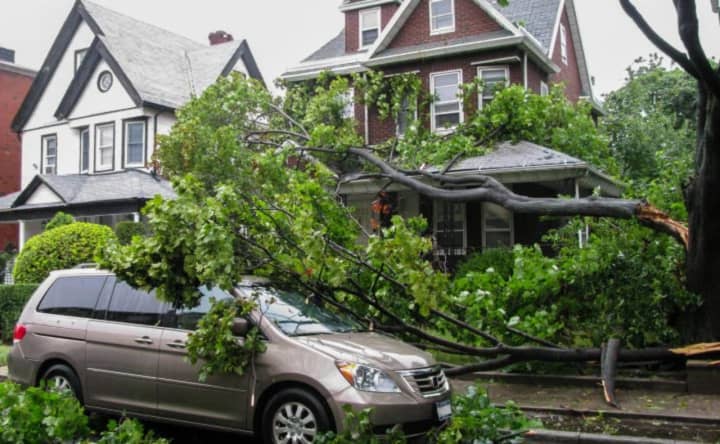With each major storm, this becomes one of the most frequent questions received by insurance agencies across the country.
Am I covered?
If a tree falls on your house, are you covered? Although coverage can vary, Jeanne M. Salvatore, senior vice president and consumer spokesperson for the Insurance Information Institute said, “If a tree hits a home or other insured structure such as a detached garage, standard homeowners insurance policies provide coverage for the damage the tree does to the structure and the contents within it. This includes trees felled by a windstorm, hail, weight of ice, snow or sleet.”
If it was your neighbor’s tree, are you still covered? It doesn’t matter whether or not a tree was actually growing on your property; if it lands on your home, you should file a claim. After a hurricane or windstorm, trees and branches can become projectiles traveling significant distances. Insurance companies do not waste time trying to locate exactly where the tree originally lived.
If your car is damaged by a fallen tree, are you covered? Cars that have been damaged by fallen trees are covered, but not by your homeowner’s policy. Instead you are covered under the comprehensive portion of your auto insurance policy, subject to your deductible (unless you have chosen to exclude comprehensive coverage).
Are you covered for the cost of removing the tree? If a tree hits an insured structure, there is coverage for the cost of removing the tree. If the fallen tree did not hit an insured structure, there is generally limited coverage with a maximum of $500 or $1,000 even if multiple trees have fallen. Some elite insurance companies may pay for the total cost of removal if the tree falls on a driveway, pathway, fence or structure.
Is filing a claim worth it?
Keep in mind that although you will likely be reimbursed for your damage, coverage will be subject to your deductible. If your damage is minimal you may want to think twice before filing a claim. You don’t want to be put in the position of facing an increase in insurance rates or possible non-renewal of your policy for a small claim.
Preventative Tips from Advocate Brokerage
• Have your trees periodically inspected by an arborist, get a written report and keep it on file in a safe place.
• If a neighbor’s tree is visibly unhealthy, send a letter (either certified, return receipt or in a provable email) to let them know you believe your property is in peril. This creates a paper trail.
• If you have concerns about what you should do when a tree has fallen on your property, call your insurance agent.
If you have any questions about coverage, reach out to Advocate Brokerage at 914-723-7100 or visit their website at advocatebrokerage.com.


